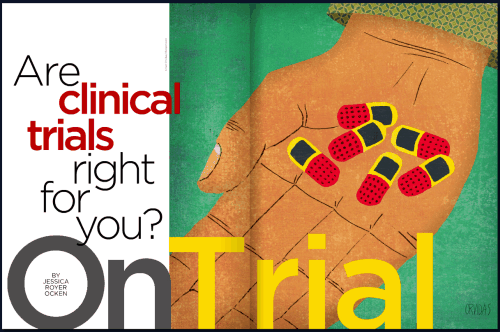Should I Join a Clinical Trial?
As many of you know, I often share clinical trials that are looking for participants through Facebook or Twitter. I was recently looking at an article from the National Headache Foundation from a few years ago that had some very helpful tips for those who are thinking of joining a trial.

Let me quickly share some highlights from the article, which I encourage you to read for yourself.
As you might guess, by far most ideas for treatment never make it to the market. First, they need to go through a rigorous process, checking for safety and of course evaluating if they are really going to help. Some medications might be helpful, but they may be far more expensive than something already on the market that’s just as good. Others may have too many unwanted side effects.
But although research and animal testing has probably already gone a long way before the first human tries the treatment, there still has to be a first human! And without people involved in clinical trials, most of the medications available today for migraine wouldn’t exist.
So, in spite of the risks, there are also excellent reasons to be involved in a clinical trial. For example, the knowledge that you’re helping to move migraine research forward. The possibility that you may get early access to a medication that really does change your life. And an insight into the testing process. Maybe even some knowledge that will help you evaluate your own medications.
Other than subscribing to our Facebook or Twitter feeds, there are other ways to get involved. Many research facilities actually have a list of people who are willing to be called if there is a new trial (the article mentions Mercy as an example).
A couple of key things to remember, and then I’ll send you to the full article if you would like to know more. First, remember that a clinical trial doesn’t always mean you’ll be trying a new medication. The best trials are “blind” or “double blind”, which means that some people will receive the real medication, others will receive a placebo.
Also remember that you’re never “tied into” a clinical trial. You can quit if you like. But do be sure to carefully read through all the information, and especially everything that you need to sign, so that you know what is required of you. Some trials are mostly online, some require more doctor’s visits. Some take a lot of time, some hardly any. If you have any questions, ask!
For more information, check out the full article by Jessica Royer Ocken – Are Clinical Trials Right For You?
